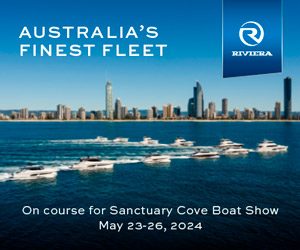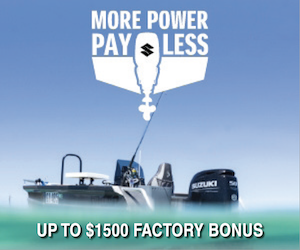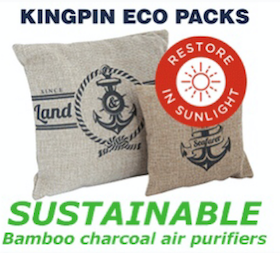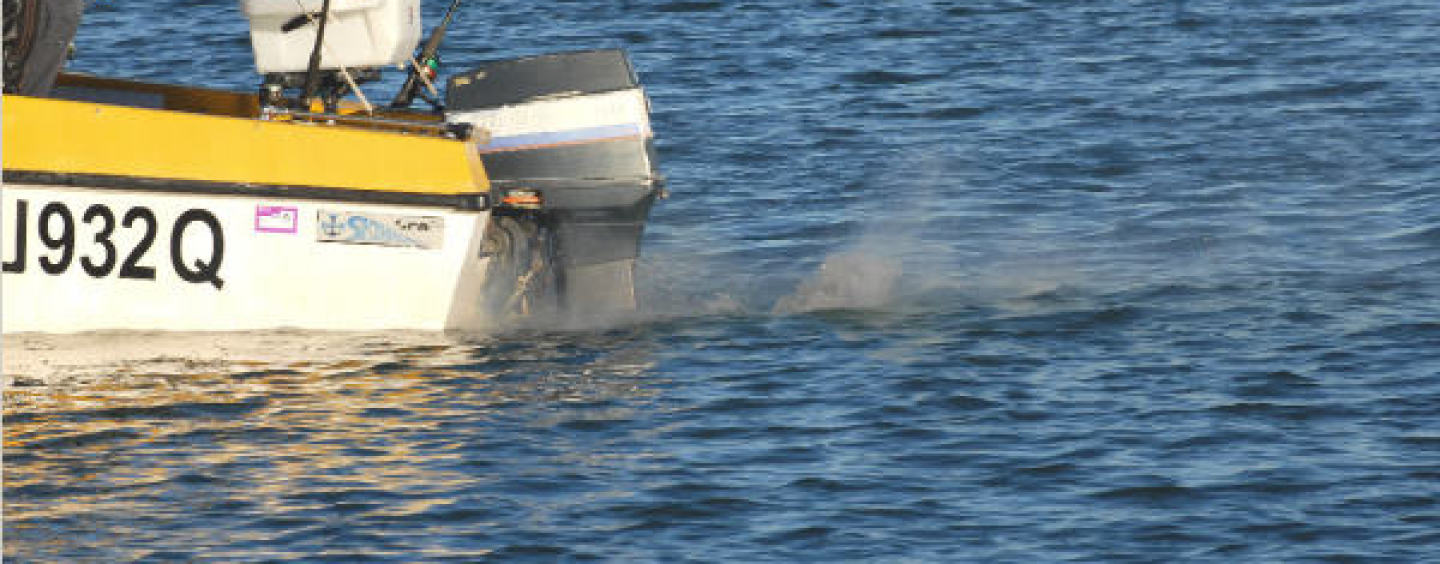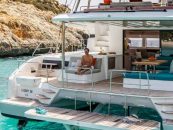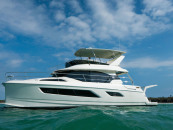Round Two: On the Two-Stroke Engine Ban
In the November-January 2016 edition of Boat Gold Coast, we featured a story on the upcoming legislation regarding two-stroke engines in Australia (Is It The End of Two-Stroke Outboards?). A reader sent us his thoughts about the impending two-stroke engine ban. We asked a representative from the group that is lobbying for low-emission engines, Blue Sky Alliance, to respond. Here are both their comments.
Dear Editor,
A blanket ban on two-stroke engines would prejudice small engine owners. I sail a 600kg sail boat for racing and cruising, consuming 1 litre of fuel per month for the 4hp! The problem with four-stroke is that they are too heavy for race boats, usually 50% heavier for same hp and are not suitable for a rollicking vessel. We only use an inbuilt fuel tank, again to keep weight down. The pollution and fuel consumption are negligible. Why not exclude under 10hp from this draconian idea?
Cheers
Dr R. John Kearney OAM
Elliott 7 “Aqueous Humour”
—
Dear Dr John,
I hear your angst and would like to invite you to sit back, pick up a cold drink and have a look at some of the equally cold hard facts. And then, I have a solution that should work for you.
But first: It’s not a blanket ban on two-strokes. It’s a ban of any high-emission engine. Ok, yes, the average carby two-stroke has 1100% more harmful emissions than a four-stroke. As an economist I can say that the independent Cost Benefit Analysis shows a savings to the Health budget of $240m p.a. from regulating all small engines. Goodness knows how much human suffering that represents!
“Usually 50% heavier for same HP”- From the outboard database, the average 4hp two-stroke is 20.0kg, and the mean four-stroke weighs 25.58kg. So that’s 5.6kg more or about how much I am overweight. In any case, it’s 28% more on average (not 50%) and less if you shop for a light four-stroke. Across the range, clean engines are around 20% heavier.
In addition, a four-stroke uses 30% less fuel so you can get the same range from 7 litres of fuel as you would now from 10 litres. That alone will save you 2kg and some could save more weight by having a smaller fuel tank.
I understand that weight is an issue in racing, so have you considered an electric outboard? An engine 3hp equivalent including battery can weigh only 13.4kg.
“Pollution and fuel consumption are negligible” – Again, let’s look at the hard facts from the manufacturers themselves (and audited by the USA EPA). The average emissions (HC+NOx) from a 4hp two-stroke is 0.76kg/hr and the four-stroke 0.068. That’s typical—the two-stroke has 11 times the pollutants per hour.
As you say, with a 4hp run for 10 minutes a month, the difference is small. Your pollution production is very low. But go to a shop and stand staring at two 4hp outboards. Let’s say both will have a life span of 500 hours. The two-stroke will contribute 345kg more pollutants over its life if that’s the one you choose today.
Yes, your usage is low, but can you suggest how to draft a law that gives you an exemption but not the fisherman doing 120 hours a year? It’s just not practical. It’s even less practical when you consider that the set of laws will cover all non-road petrol engines from mowers to chain saws and generators to outboards. Confession time: I own a two-stroke—a chain saw, that I use for twenty minutes every two years.
“Why not exempt under 10hp?” – Because the engines under 10hp are the worst polluters. Compare a famous brand of outboards: an 8hp two-stroke and a 150hp four-stroke. Which do you think has more emissions per hour? Yep, the 8hp has more—in fact 59% more emissions than the 150hp four-stroke. The difference is astounding! (Source: USA EPA Audited certification database).
When? The laws were due to be before Parliament in June 2016. But the election has thrown around the timing. After a recent visit (mid election) to Canberra, I still consider the two-step 2017/2019 implementation is likely and that the legislation has such a momentum and wide support that even a change of Minister won’t stop the legislation.
“Draconian” – Australia is 19 years behind the USA in regulating small engines. We are behind EU, Canada, Switzerland, Japan, Turkey, India and China. Sailors have a better reputation for being environmentally responsible than fishers like me. So don’t you think it’s embarrassing that we will be five years behind China?
Some Solutions? Keep your two stroke and maintain it well. Or buy a spare two-stroke now and mothball it. Or choose to do the right thing and buy an electric outboard. Or buy a lighter four-stroke and carry less fuel.
Gary Fooks (www.blueskyalliance.com.au)


